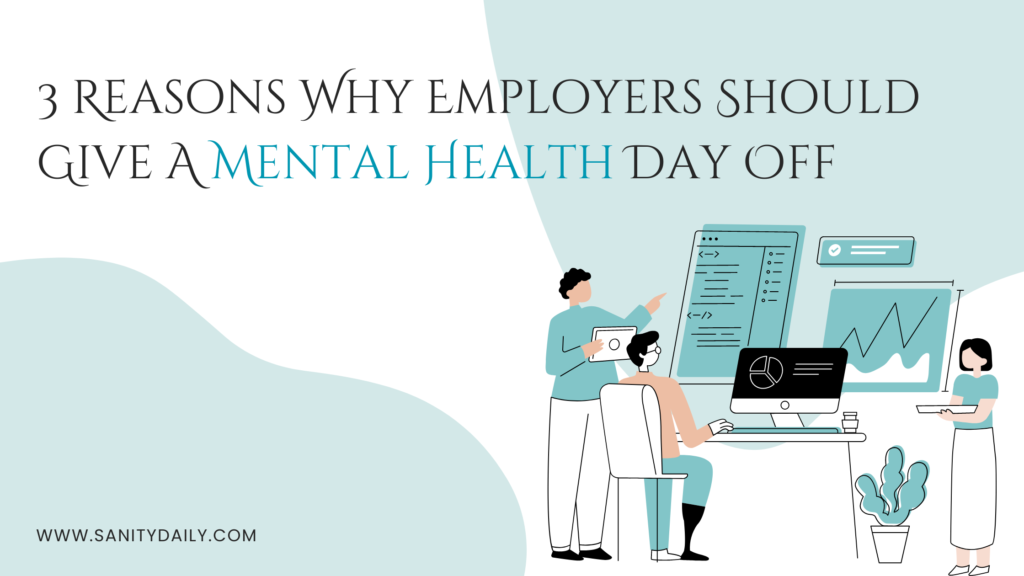Can a mental health day off help employees manage a better work-life balance? Can it aid in better employer relationships? With the ongoing cost of living crisis in the UK and people still dealing with the post-pandemic stress, the majority of the population has been left devastated. To provide a better work-life balance, many employers are recognising the importance of supporting their employee’s mental health in the best way they can but still, there is a huge gap.
In this blog, we will talk about why employers should give a mental health day off to their staff members. Besides the other practices, employers can provide a complete mental health day off to their employees as an overall approach to supporting the staff’s well-being. Although the data has only been upwards rising when it comes to stress and anxiety, it is imperative to note that there has been also a significant increase in the awareness of the impact of mental health on the workplace.
As part of an ongoing commitment to employee wellbeing, Thomson Reuters has introduced two annual company mental health day holidays, in 2022. On those days, the employees ‘use the time off with intention and do something that gives the day meaning to them’. We can encourage more and more employees to follow the same path and contribute to the overall well-being of employees. Employees who are struggling with their mental health may be more likely to take sick days, by offering mental health days, employees may be more likely to take a day off when they need it, rather than pushing through and potentially prolonging their mental health struggles.
The ongoing awareness about mental health will help to promote a better quality of life and be a torch-bearer for destigmatising mental health issues in the workplace. It is highly important to provide a safe space in the working environment as we spent most of our active hours at work. Employment policies could include available resources and support and can introduce a more flexible approach like a complete day off for mental health reasons.
3 Reasons to Give a mental health day off
Here are 3 reasons to give a mental health day off to employers, to improve productivity,
promote a positive work culture, and better overall outcomes for both employees and
employers.
1.) Destigmatisation of mental health illness/disorder: Mental health is as important as our physical health yet we are shamed and labelled if we talk openly about having a panic attack, depressive episode or any other mental health disorder. If we can provide enough safe space for individuals to talk openly about how they are dealing with their personal emotions, it will not only help them to cope with it in a better way but also improve work quality.
2.) Improved productivity at the workplace: When an employee is stressed out, the ability to focus challenges him and yet he wants to work because he cannot say that he’s stressed. Sometimes a short break helps to bounce back with better clarity and focus. Providing a mental health day off can help them to priortise their mental health and return to work feeling refreshed and more productive.
3.) Increased loyalty towards employees: If you care about your employers, employers care about you even more. It is part of job recognition when an employee offer a day off to you they mean they value your hard work and want you to be your best and if you are not feeling your best today, it will affect your inner and outer world. Giving that break helps employees to nurture their feeling and also gives a sense of belonging to the
organisation or workplace.
To conclude, I would say that it is quite encouraging to see the conversations happening around mental health awareness and employees taking steps to improve employees mental health and well-being. If more organisations adapt to this practice, this step will definitely improve work productivity, increase loyalty, reduce absenteeism, and most importantly help to destigmatize mental health in the workplace.

